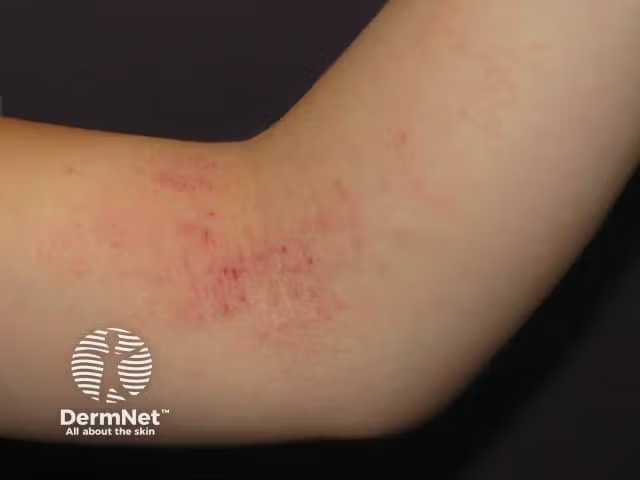- Case-Based Roundtable
- General Dermatology
- Eczema
- Chronic Hand Eczema
- Alopecia
- Aesthetics
- Vitiligo
- COVID-19
- Actinic Keratosis
- Precision Medicine and Biologics
- Rare Disease
- Wound Care
- Rosacea
- Psoriasis
- Psoriatic Arthritis
- Atopic Dermatitis
- Melasma
- NP and PA
- Skin Cancer
- Hidradenitis Suppurativa
- Drug Watch
- Pigmentary Disorders
- Acne
- Pediatric Dermatology
- Practice Management
- Prurigo Nodularis
- Buy-and-Bill
News
Article
Dermatology Times
Enhancing Atopic Dermatitis Treatment: Insights From Cutting-Edge Studies and Clinical Perspectives Part 2
Author(s):
A 5-expert panel continues their conversation on atopic dermatitis, exploring beyond steroids and addressing unmet needs.

Experts Linda Stein Gold, MD; Michael Cameron, MD; James Del Rosso, DO; Brad Glick, DO, MPH; and Lisa Swanson, MD, continue their conversation on enhancing atopic dermatitis treatment.
Read part 1 here.
Exploring Beyond Steroids
The panel discussed strategies aimed at exploring treatment options beyond traditional steroid therapies for AD. Stein Gold highlighted the necessity for alternative approaches, saying, “We need to be in a more holistic approach to treatment.” The conversation shed light on the limitations of nonsteroidal treatments in adequately addressing the diverse needs of patients with mild to moderate AD.
Glick emphasized the importance of advancing topical therapeutics, noting, “We need to go beyond what we’ve had in the past.” The entire panel agreed that ruxolitinib samples are highly sought after in their office due to the data available. Cameron added, “The company [Incyte] has done great work over the past few months in ensuring access. As prescribers, we don’t have to worry about access....That wasn’t the case at launch. I think they would be the first to admit that, but now there’s going to be a consistent response in terms of access, particularly for commercial insurance.”
Del Rosso added, “We published a couple of cases and showed them [to payers and stakeholders] on different webinars and things: patients having very intense itching and, within a matter of days, started sleeping comfortably and consistently with ruxolitinib.” Swanson addressed how some patients were skeptical about insurance approvals and said, “People got discouraged and stopped trying. This drug is so good. It’s worth trying
again to get it for your patients.”
Unmet Needs
The panel took a deep dive into the clinical aspects and unmet needs of dermatologic conditions within current treatment modalities, shedding light on the challenges faced by both patients and health care providers and opportunities to identify areas for improvement. Stein Gold emphasized the importance of understanding the clinical nuances of skin conditions, stating, “We need to delve deeper into the clinical aspects to provide better care.” Glick echoed this sentiment, highlighting the need to address unmet needs in dermatology to enhance patient outcomes. He said, “We must focus on unmet needs to drive innovation and progress in dermatologic care.” The experts engaged in a comprehensive discussion on the challenges faced by patients with skin conditions, emphasizing the importance of tailored and effective treatment strategies.
Glick highlighted a limitation of topical corticosteroids, stating that they increase transepidermal water loss, indicating a need for new nonsteroidal agents to address this issue. Stein Gold emphasized the unmet need for a well-tolerated topical treatment that effectively reduces itch without causing significant adverse effects such as stinging or burning, indicating a gap in current treatment options. The panelists discussed the challenge of addressing the “itch that rashes” phenomenon in patients with AD, where persistent itching may continue even after the rash has resolved, highlighting the need for comprehensive symptom management beyond visible skin manifestations. Cameron mentioned the importance of profound itch relief in improving quality of life for patients with AD, indicating a need for treatments that can provide significant and rapid relief.
Cameron said, “Enhancing access to innovative therapies is crucial in addressing the unmet needs of patients with dermatologic conditions.” The experts stressed the importance of patient-centered care, focusing on individualized treatment plans and shared decision-making to improve patient satisfaction and outcomes.
Continued in part 3.







